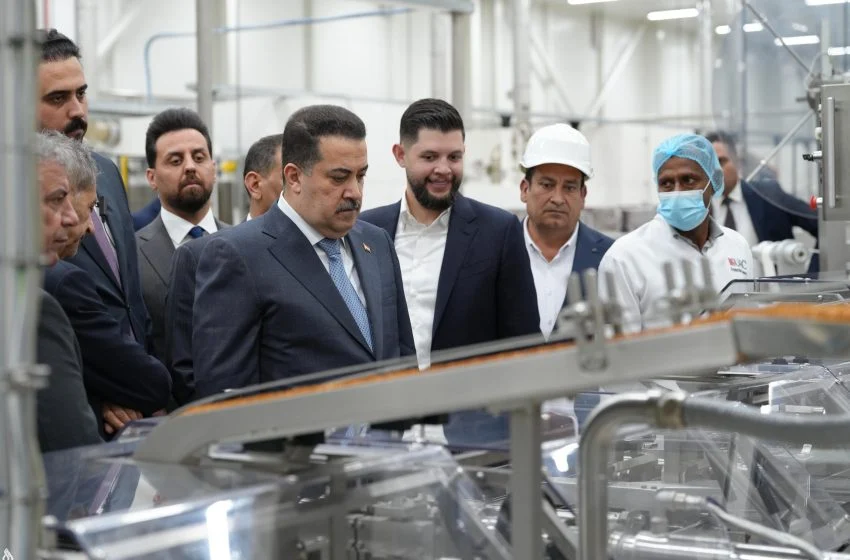Iraq’s private sector investment expands as the country opens new industrial facilities. Recently, Prime Minister Mohammed Shia Al Sudani inaugurated modern factories south of Baghdad. These factories, launched by the United Arab Food Industries Company Ltd., mark a major step in boosting Iraq’s national economy.
To begin with, the facilities are located in Mahmoudiya and include new production lines for pastries and noodles. This first phase represents a large investment of 128 billion Iraqi dinars. Currently, the project employs 800 workers. However, plans are already in place to expand that number to more than 1,000.
Moreover, Iraq’s private sector investment plays a key role in this progress. Al Sudani praised the project, calling it a strong example of private sector leadership. In fact, he described such companies as true partners in national development. As a result, this message highlights the government’s firm support for private economic initiatives.
During the visit, the Prime Minister toured the facilities and expressed full readiness to back future expansions. In addition, he stressed the government’s plan to eliminate barriers that slow business growth. Therefore, more projects like this can grow faster with fewer delays.
Furthermore, Al Sudani announced a new export support program. The government will subsidize 18 percent of the value of Iraqi-made goods for export. Consequently, local companies will be more competitive in global markets. At the same time, this will make it easier for Iraqi businesses to reduce costs and reach more international buyers.
Notably, the Prime Minister highlighted that Iraq’s private sector investment helps reduce imports. Thus, Iraq can save large amounts of foreign currency. Also, new factories mean more jobs for Iraqis. Unemployment has already fallen to 13 percent, showing the impact of new industrial activity.
Importantly, Al Sudani clarified the government’s role. He said the state should organize, support, and prepare the ground for businesses, not control them. Instead, the private sector should take the lead in production and growth.
Overall, this project reflects Iraq’s broader economic strategy. By encouraging domestic production, the country becomes more self-reliant. With support from the government, private businesses can lead the way in modernizing the economy.
In conclusion, Iraq’s private sector investment continues to drive growth in the industrial sector. New factories, more jobs, and export incentives are building a stronger future. Clearly, this partnership between the government and private companies is helping Iraq reach new economic goals.


